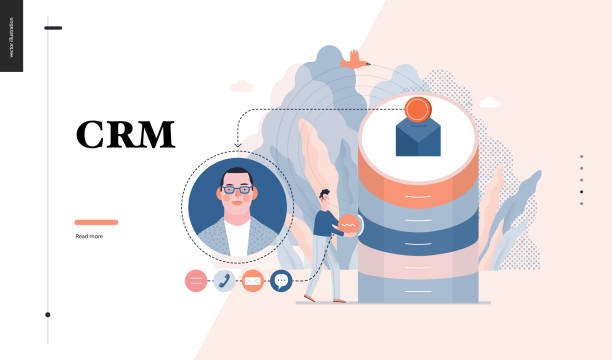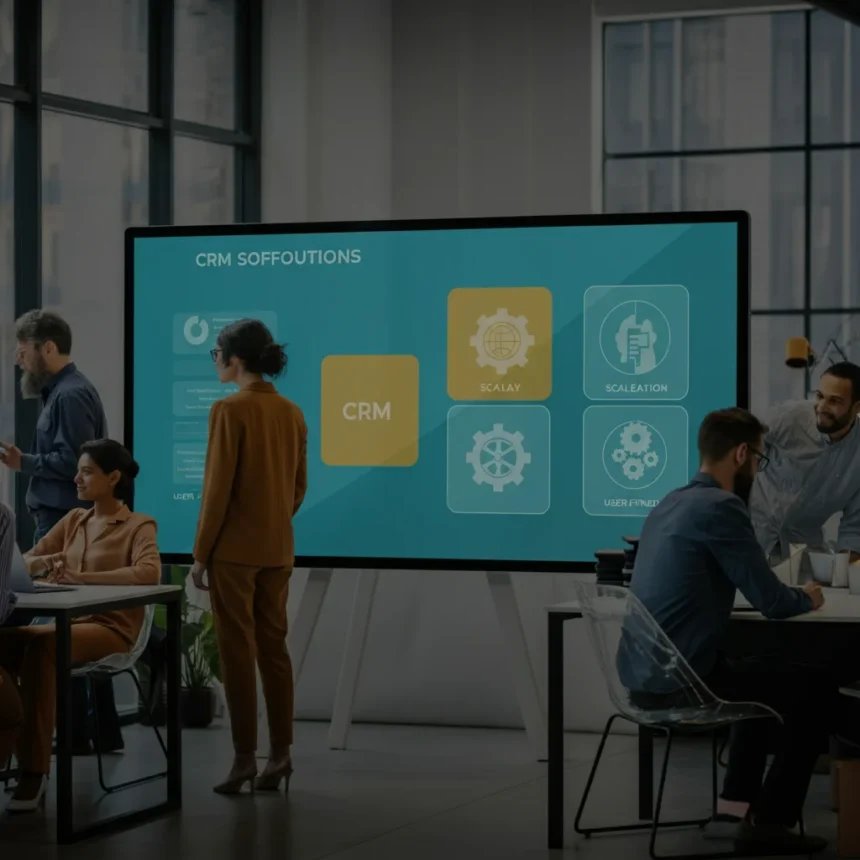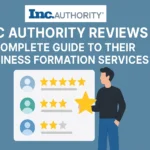Choosing the right Customer Relationship Management (CRM) system can make or break your business growth strategy. With over 800 CRM solutions available in the market, the selection process often feels overwhelming for business owners and IT professionals alike. However, a systematic approach to CRM evaluation can transform this challenge into a strategic advantage.
The stakes are high when it comes to CRM selection. Research shows that 47% of CRM implementations fail due to poor system selection, inadequate planning, or insufficient user adoption. These failures cost businesses not only their initial investment but also valuable time, employee productivity, and customer relationships.
This comprehensive guide will walk you through a proven framework for How to Evaluate a CRM system effectively. Whether you’re a small business owner implementing your first CRM or an enterprise IT professional comparing advanced solutions, you’ll discover actionable strategies for CRM software testing and evaluation that ensure long-term success.
By the end of this guide, you’ll have the knowledge and tools needed to make an informed decision that aligns with your business goals, budget, and growth trajectory.
Defining CRM: What Does CRM Stand For and What Does it Do?

Customer Relationship Management (CRM) software serves as the central hub for managing all customer interactions, sales processes, and marketing campaigns. At its core, a CRM system stores customer data, tracks communication history, and provides insights that help businesses build stronger relationships with their clients.
Modern CRM systems go far beyond simple contact management. They integrate sales pipeline management, marketing automation, customer service tools, and analytics into a unified platform. This integration enables businesses to maintain consistent customer experiences across all touchpoints while providing teams with the data they need to make informed decisions.
Understanding what a CRM can and cannot do for your specific business context is crucial before beginning the evaluation process. A clear grasp of your requirements will guide your assessment and help you avoid investing in features you don’t need or missing critical functionality your business relies on.
Key Features to Evaluate in a CRM System
When conducting CRM software testing, focus on these essential features that directly impact business performance:
Contact and Lead Management
Your CRM should provide comprehensive contact profiles that capture all relevant customer information, interaction history, and preferences. Look for systems that allow custom fields, tags, and segmentation capabilities that match your business model.
Sales Pipeline Management
Evaluate how the CRM handles your sales process. The system should support your existing sales stages while providing flexibility to customize workflows as your processes evolve. Pay attention to deal tracking, forecasting accuracy, and reporting capabilities.
Marketing Automation
Modern CRMs integrate email marketing, lead nurturing, and campaign management tools. Assess whether the platform can automate repetitive marketing tasks while maintaining personalization at scale.
Reporting and Analytics
Data-driven decision making requires robust reporting capabilities. Test the CRM’s ability to generate custom reports, track key performance indicators (KPIs), and provide actionable insights about customer behavior and sales performance.
Mobile Accessibility
With remote work becoming standard, mobile functionality is no longer optional. Evaluate the mobile app’s performance, offline capabilities, and feature parity with the desktop version.
Assessing User-Friendliness and Adoption Rates
User adoption represents the single most critical factor in CRM success. Even the most feature-rich system fails if your team doesn’t use it consistently. During your evaluation, prioritize systems that minimize the learning curve while maximizing productivity.
Start by involving end-users in the testing process. Sales representatives, customer service agents, and marketing professionals should all have opportunities to interact with potential CRM solutions during trial periods. Their feedback will reveal usability issues that might not be apparent to decision-makers.
Consider the onboarding experience each CRM provides. HubSpot CRM, for example, has gained popularity among small businesses partly due to its intuitive interface and comprehensive onboarding resources. The system guides new users through setup processes and provides contextual help that reduces time-to-productivity.
Examine the customization options available without requiring technical expertise. The best CRMs allow users to modify dashboards, create custom fields, and automate workflows using drag-and-drop interfaces rather than coding knowledge.
Integration Capabilities: Ensuring Compatibility With Your Existing Systems
CRM systems rarely operate in isolation. They must integrate seamlessly with your existing technology stack, including email platforms, accounting software, marketing tools, and industry-specific applications.
Create an inventory of your current software solutions before beginning CRM evaluation. Identify which integrations are essential for day-one functionality versus nice-to-have connections that could be added later. This prioritization helps focus your assessment on critical requirements.
Microsoft Dynamics 365 exemplifies strong integration capabilities, particularly for organizations already using Microsoft products. The platform connects naturally with Office 365, SharePoint, and Teams, creating a unified work environment that enhances productivity.
Evaluate both native integrations and third-party connection options. Platforms like Zapier and Microsoft Power Automate can bridge gaps between systems, but native integrations typically offer better performance and reliability.
Scalability: Choosing a CRM That Grows With Your Business
Scalability considerations extend beyond simple user count increases. Your CRM should accommodate growing data volumes, increased transaction complexity, and expanded functionality requirements as your business evolves.
Assess pricing models to understand how costs scale with growth. Some vendors charge per user, while others base pricing on features, data storage, or transaction volumes. Salesforce, for instance, offers multiple tiers that allow businesses to start with basic functionality and upgrade to advanced features as needed.
Consider geographic expansion requirements if applicable. Global businesses need CRMs that support multiple currencies, languages, and compliance requirements across different regions.
Examine the upgrade path between different service tiers. Smooth transitions between plans ensure business continuity as you scale, while complex migration processes can disrupt operations during critical growth periods.
Customer Support and Training: Finding a Reliable Partner
CRM implementation success depends heavily on the vendor’s support quality and training resources. Evaluate support options during the trial period to assess responsiveness, expertise, and problem-resolution effectiveness.
Look for vendors that offer multiple support channels, including phone, email, live chat, and comprehensive knowledge bases. Consider the support hours and whether they align with your business operations, especially if you operate across multiple time zones.
Training resources should accommodate different learning styles and user roles. Zoho CRM provides extensive documentation, video tutorials, and certification programs that help users maximize the platform’s capabilities.
Assess the vendor’s implementation services and ongoing support options. Some vendors provide dedicated customer success managers for larger accounts, while others rely primarily on self-service resources.
Cost vs. Value: Understanding the ROI of a CRM System
CRM evaluation requires looking beyond initial licensing costs to understand total cost of ownership (TCO) and return on investment (ROI). Consider implementation costs, training expenses, integration development, and ongoing maintenance requirements.
Calculate potential savings from improved efficiency, reduced customer acquisition costs, and increased customer retention rates. Research indicates that CRM systems can deliver ROI of $8.71 for every dollar invested, but actual returns vary significantly based on implementation quality and user adoption.
Compare pricing models carefully. HubSpot CRM offers a free tier that provides basic functionality for small teams, making it an attractive option for businesses with limited budgets. However, advanced features require paid upgrades that may ultimately cost more than competitors’ comprehensive packages.
Factor in hidden costs such as data migration, custom development, and third-party integration expenses. These costs can significantly impact your total investment and should be included in ROI calculations.
Case Studies: Real-World Examples of CRM Success
Learning from others’ experiences provides valuable insights for your own CRM evaluation process. Consider these examples of successful implementations across different business types and sizes.
A growing e-commerce company implemented Salesforce to manage increasing customer volumes and complex product catalogs. The investment in advanced automation and analytics capabilities resulted in 40% faster lead response times and 25% improved conversion rates within six months.
A professional services firm chose Zoho CRM for its affordability and comprehensive feature set. The integrated project management and invoicing capabilities eliminated the need for separate software solutions, reducing overall technology costs by 30% while improving client communication.
A manufacturing company selected Microsoft Dynamics 365 to leverage existing Microsoft infrastructure investments. The seamless integration with existing systems reduced implementation time by 50% and provided immediate productivity gains across sales and customer service teams.
These examples highlight the importance of aligning CRM selection with business priorities, existing technology investments, and growth objectives rather than simply choosing the most popular or feature-rich option.
FAQ About How to Evaluate a CRM
How to evaluate performance of CRM?
CRM performance evaluation involves measuring key metrics such as user adoption rates, data quality improvements, sales cycle reduction, customer satisfaction scores, and overall ROI. Establish baseline measurements before implementation and track these metrics regularly to assess system effectiveness.
What is CRM evaluation?
CRM evaluation is the systematic process of assessing different CRM solutions against your business requirements, budget constraints, and strategic objectives. It involves testing features, comparing costs, evaluating vendor support, and analyzing how well each system aligns with your specific needs.
How to measure CRM effectiveness?
Measure CRM effectiveness through quantitative metrics like increased sales conversion rates, reduced customer acquisition costs, improved customer retention, and enhanced team productivity. Qualitative measures include user satisfaction, data accuracy improvements, and better customer relationship quality.
How do I know if my CRM is successful?
A successful CRM implementation shows measurable improvements in sales performance, customer satisfaction, team efficiency, and overall business growth. Key indicators include high user adoption rates, clean and actionable data, streamlined processes, and positive ROI within 12-18 months.
How can the success of CRM be directly measured?
Direct CRM success measurement focuses on specific KPIs such as sales revenue increases, lead conversion rate improvements, customer lifetime value growth, support ticket resolution time reduction, and marketing campaign effectiveness improvements.
What are the success factors of CRM?
Critical CRM success factors include strong leadership support, comprehensive user training, proper data migration and cleanup, customization that matches business processes, ongoing system maintenance, and continuous user feedback incorporation.
Making the Right Choice for Your Business
Evaluating a CRM system requires balancing immediate needs with long-term strategic goals. The most effective approach involves creating a structured evaluation framework that considers functionality, usability, scalability, integration capabilities, and total cost of ownership.
Remember that the “best” CRM varies significantly based on your specific business context. A solution perfect for a large enterprise might overwhelm a small business, while a simple system suitable for startups may lack the sophistication required for complex sales processes.
Take advantage of free trials and demonstrations to test systems thoroughly before making commitments. Involve end-users in the evaluation process and prioritize solutions that demonstrate clear paths to user adoption and business value.
The CRM selection process represents an investment in your company’s future growth and customer relationship capabilities. By following the evaluation framework outlined in this guide, you’ll be well-equipped to choose a system that supports your business objectives and delivers measurable returns on your investment.
For more insights on business growth strategies and operational efficiency, explore our guide on [Do I Need a Business License for Rental Property?] to understand how proper business structure supports scalable growth.
Read also this trending article: Do I Need a Business License for Rental Property?




![Do I Need a Business License for Rental Property? [2025 Guide] Do I Need a Business License for Rental Property](https://duhmagazine.com/wp-content/uploads/2025/07/Jasper_2025-07-28T013A203A05.561Z-150x150.webp)




